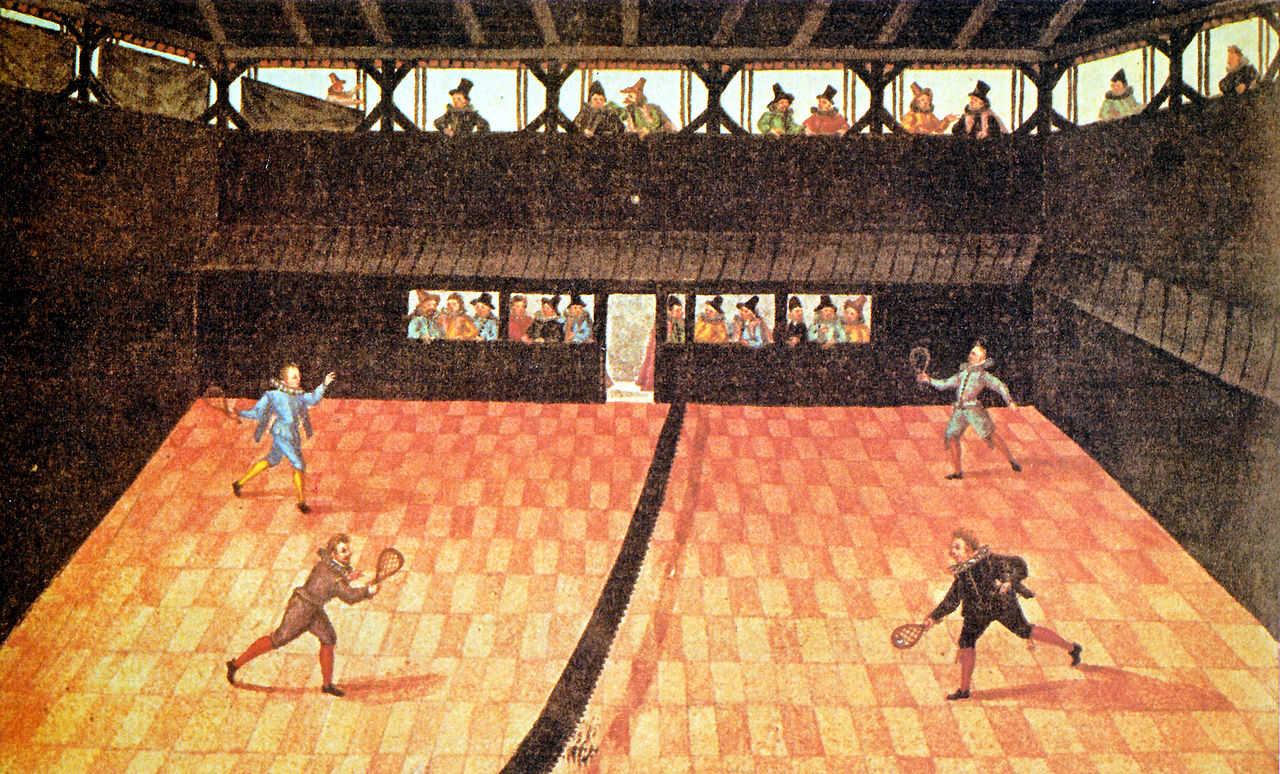
If in my weake conceit, (for selfe disport),
The world I sample to a Tennis-court,
Where fate and fortune daily meet to play,
I doe conceive, I doe not much misse-say.
All manner chance are Rackets, wherewithall
They bandie men like balls, from wall to wall:
Some over Lyne, to honour and great place,
Some under Lyne, to infame and disgrace;
Some with a cutting stroke they nimbly send
Into the hazzard placed at the end;
Resembling well the rest which all they have,
Whom death hath seiz’d, and placed in their grave:
Some o’re the wall they bandie quite away,
Who never more are seene to come in play:
Which intimates, that even the very best
Are soone forgot of all, if once deceast.
So, (whether silke-quilt ball it bee, or whether
Made of course cloth, or of most homely lether;)
They all alike are banded to and fro,
And all at last to selfe same end do goe,
Where is no difference, or strife for place:
No odds betweene a Trype-wife and your Grace:
The penny-counter’s every whit as good,
As that, which in the place of thousands stood.
When once the Audit’s full cast up, and made,
The learned Arts, well as the manual Trade:
The Prisoner and the Judge upon the Bench:
The pampred Lady, and the Kitchin-wench:
The noble Lord, or, Counsailor of State,
The botchy-Lazer, begging at the gate,
Like Shrubs, and Cedars mingled ashes, lye
Without distinction, when they once do dye.
Ah for unpartiall death, and th’homely grave
Looke equall on the free man and the slave.
So most unpartiall umpires are these twain,
A King with them’s but as a Common Swain.
No upper hand, ‘twixt dust of poore and rich,
No Marshall there to sentence which is which;
And onced resolv’d to powder, none can ken
The dust of Kings from dust of other men:
But as at Chesse, when once the game is doon,
The side which lost, and that as well which wonn,
The victor King, and conquer’d pawne, together
Jumbled, are tumbled to th’same bagge of lether,
Without regard whether the pawne or King
Therein lye uppermost, or underling.
Nathlesse all sorts, each sexe of purpose winke,
And of this destinie doon seldome thinke,
Living, (alacke), as life should never faile,
And deeme of death but as an old wives’ tale.
— William Lathum, 1634
